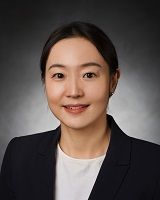Molecular Scale Engineering of Polymer Membranes for Environment, Energy and Health

Assistant Professor Hee Jeung Oh of Penn State University will present a free webinar on novel, solvent-free methods for preparing semipermeable membranes used in water purification and time-release pharmaceutical applications.
Abstract
Designing new polymer membranes with a set of previously unachievable transport properties will have an enormous impact on various applications, including energy-efficient separations, energy storage and health-related devices. The advancement of these technologies is dependent on polymer membranes which selectively transport only desired penetrants while maintaining chemical stability. Molecular transport in polymer membranes is greatly influenced by the chemical and morphological structures of polymers. Here two research projects are presented for designing new membranes using charged polymers for improved molecule separations. The transport mechanism in the polymer membranes is studied from the fundamental perspectives of polymer-penetrant interactions and templating diffusion pathways for selective transport of small molecules.
First, solvent-free, melt processed ion-exchange membranes based on sulfonated polymers are presented for water purification and desalination. Most membranes currently used in industry are prepared by solvent processing using large volumes of hazardous solvents. Despite the negative environmental impact, solvent processing is the only method to form thin film membranes on the order of 10-200 nm thickness. In stark contrast to conventional solvent processing, robust ion-exchange membranes based on sulfonated polymers were prepared by solvent-free melt processing, for the first time. The transport of small molecules in resultant membranes is significantly affected by different membrane formation methods.
Second, designing nanostructured polymer membranes for a new emerging biomedical application, “drug capture”, to minimize the toxic side effects of cancer chemotherapy drugs, is discussed. Typically, more than 90% of the injected drug is not trapped in the target organ, causing systemic toxic side effects. We designed 3D printed biosponge absorbers for capturing toxic drugs downstream of tumors before they spread through the body.
Hee Jeung Oh
Hee Jeung Oh is an Assistant Professor of Chemical Engineering and Materials Science and Engineering at Penn State University. The Oh lab designs multifunctional polymer membranes for separations. Specifically, the Oh lab studies the relationship between polymer chemistry, processing, structure, and transport properties for separation science, and explores the influence of a polymer’s chemical and physical structures on transport properties such as sorption, diffusion, permeation, and conduction of small molecules in polymers and polymer-based materials. These fundamental studies are critical for designing membranes for liquid, gas and vapor separations, energy storage, selective removal of unwanted molecules from various chemical streams, selective recovery of critical and precious elements, biomedical devices, controlled drug-delivery, and barrier materials for food and packaging. Dr. Oh earned her B.S. in Chemical Engineering from the Korea Advanced Institute of Science and Technology (KAIST). Dr. Oh completed her Ph.D. in Chemical Engineering working in Drs. Benny Freeman’s and Donald Paul’s research groups at the University of Texas at Austin, exploring a variety of polymeric materials for membrane-based separation, with a particular emphasis on membranes for water purification, and focusing on transport of small molecules such as water and ions in polymer membranes. Dr. Oh first developed solvent-free, melt-processed, robust ion-exchange membranes based on sulfonated polymers, and evaluated water and salt permeation, sorption, and diffusion in the membranes. Her postdoctoral training, working in Dr. Nitash Balsara’s research group at UC Berkeley, focuses on designing porous nanostructured polymers for energy storage, as well as a new emerging biomedical application, “drug capture,” to minimize toxic side effects of cancer chemotherapy drugs. She first designed and developed a 3D printed absorber for capturing chemotherapy drugs downstream of tumors before they spread through the body and cause the toxic side effects. Dr. Oh has been recognized in honors and awards including 3M Non-Tenured Faculty Award, Young Membrane Scientist Award from the North American Membrane Society (NAMS), Hanwha Non-Tenured Faculty Award, and the University of Texas Professional Development Award. She was invited to National Academy of Engineering (NAE)’s Grainger Foundation Frontiers of Engineering (FOE) Symposium and was selected as one of the two recipients of the National Academy of Engineering (NAE)’s Grainger Foundation Frontiers of Engineering (FOE) grants in 2023.
